Since its launch in 2012, Careem has been a poster child for Dubai’s emerging startup landscape. In just eight years the ride hailing app has made its presence known in over 90 cities and 13 countries. The brand which is built upon the bedrock of innovation and enablement—a promise of “the freedom of mobility”—became a testimony to the potential of homegrown tech businesses competing with Silicon Valley’s giants like Uber.
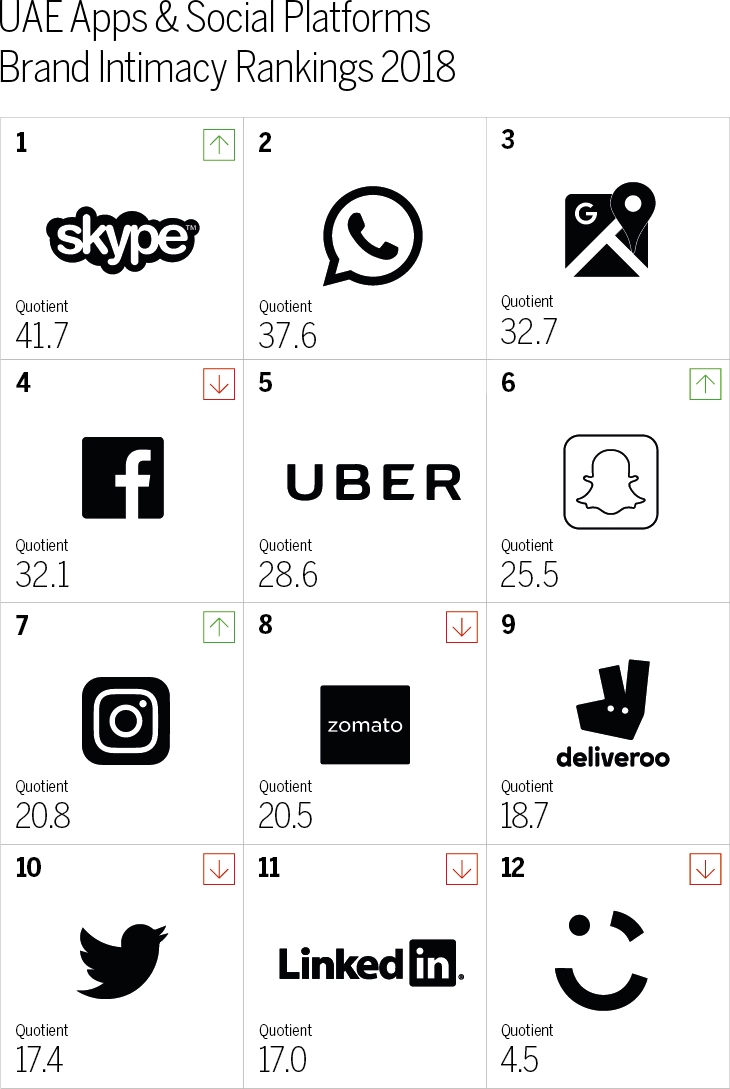
Last month, Careem revealed that it was the latest target of a data breach affecting 14 million of its users and drivers, bringing a problem increasingly faced by tech companies worldwide much closer to home. The hack was originally detected in January, but users were only informed in April—a long four months after the fact.
Naturally, data breaches and compromised information severely impact the confidence of consumers. Trust, reliability and familiarity are core components of any successful brand. The apps & social platforms industry has a slightly below-average percentage of users in the bonding stage, the middle stage of Brand Intimacy that is defined by an establishment of trust. The lack of understanding of how private information is stored and used may make it difficult for users to bond with these brands, creating a bottleneck before the bonding stage that keeps them from forming stronger, more intimate bonds.
UAE apps & social platforms Brand Intimacy stages
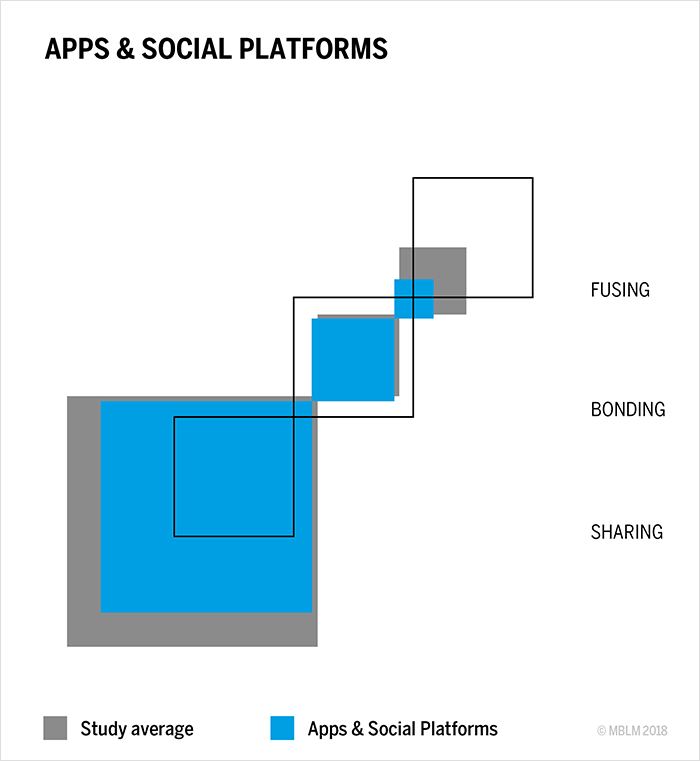
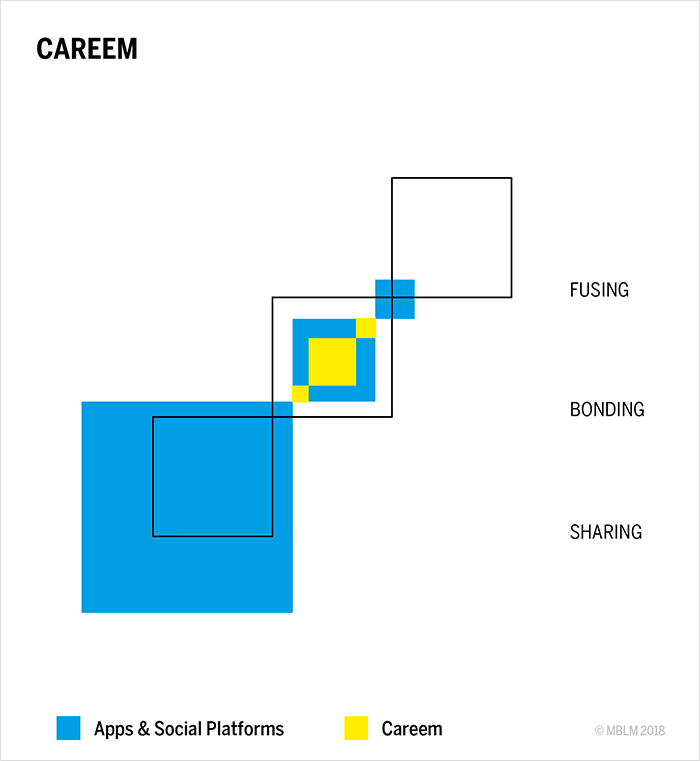
The security breach stands to affect the startup’s reputation however, especially as it counters the industry dominant archetype, enhancement–making consumers smarter and more capable. Consumers of applications like WhatsApp, Google Maps, Facebook, Uber and Careem believe they are bettered through the use of the brand. The application becomes a ritual, deeply engrained in the day-to-day lives of the users.
Strong performance in these archetypes and in the stages of brand intimacy indicate brands we can’t live without and are willing to pay more for, brands that we need and love. This emotional connection is prized by brands who try to deepen and extend the relationships with consumers.
In the case of apps & social platforms however, trust may not be as much of an issue for younger consumers. We worked with communications infrastructure leader CommScope, which published global research on how Generation Z feels about and uses technology. A key finding of the study was that Gen Z-ers are not particularly concerned about sharing or having their private information shared. This is supported by data in our 2018 Brand Intimacy Study, where younger consumers (below 35) are more trusting of apps & social platforms, with higher rates in the bonding stage than the average user (8 percent vs. 6 percent).
Apps & social platforms 2018 archetypes
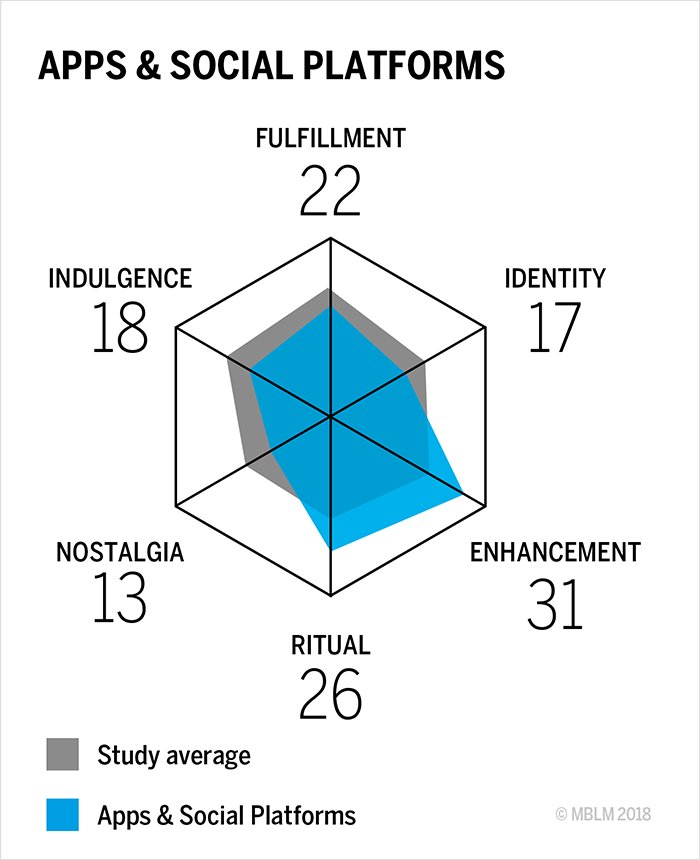
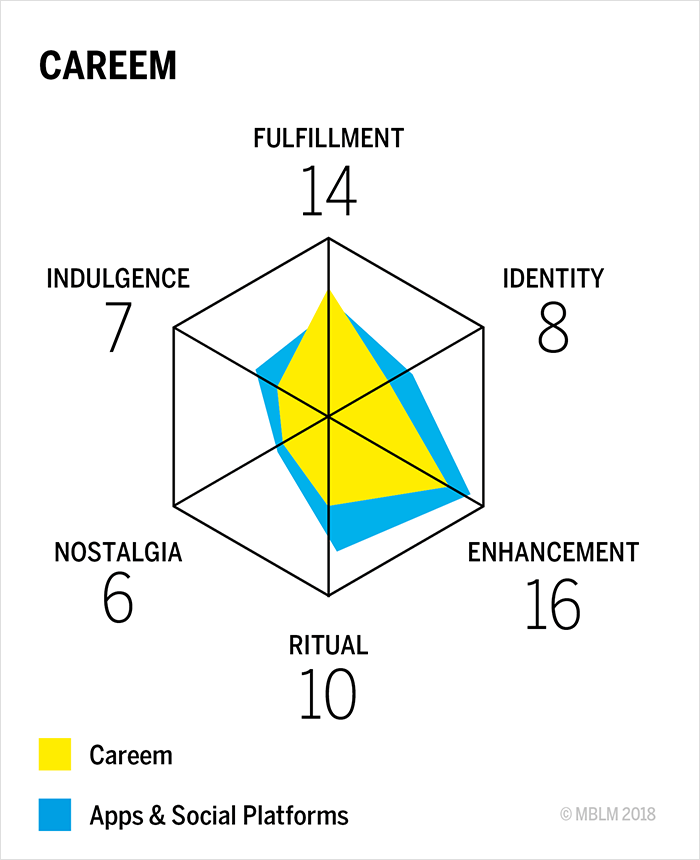
Yet, what threatens Careem’s relationship with its audience more than the data breach itself is the delayed transparency. Much of the criticism Careem is facing focuses on the fact that the data breach was revealed to users over four months after it was detected. In an era where digital privacy is recognizably at stake, with major brands failing to secure the personal details of many of their users, it’s not so much the compromised security that jeopardizes the bonds between a brand and its users, but the way they deal with it. When you consider brands as a relationship, when one party withholds information, it can jeopardize the entire dynamic. Careem is learning a valuable lesson on how to soften the backlash by revealing incidents of this nature to consumers sooner rather than later.
When Facebook came clean about its colossal data breach, much of the criticism centered around the social platform’s late and seemingly weak response. The apology appeared half-hearted and actions to address the incident seemed insincere.
Such impassivity weakens the trust and confidence any consumer has for the brand, especially brands that are making users feel empowered, better or independent. However, the EU’s latest GDPR regulations make a timely response necessary–organizations must notify users of any data breach within 72 hours of detection.
While only time can tell how the data breach will affect Careem’s relationship with its users, the experience shouldn’t override the brand’s entire history in establishing strong bonds with its audience. Careem has a pattern of developing unique and targeted initiatives that bring it closer to the community it serves. Careem Kids, launched in 2014, is a child-friendly service that offers parents the convenience of rides with pre-installed car seats. In 2017, the organization dedicated itself to women’s issues, from launching the Careem Women Empowerment and Engagement Network and increasing the number of female drivers, to organizing breast cancer awareness campaigns and empowering women in Pakistan by helping them start their own businesses.
For a brand to succeed, it must secure the trust of its consumers. Its purpose should be clear, committing itself to delivering better experiences so consumers will requite by forming deep emotional bonds. A brand that has established a high level of intimacy with its users is often in a position to harness the power and strength of that relationship, encouraging committed users to stay by its side through all its highs and lows.
